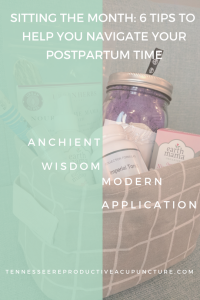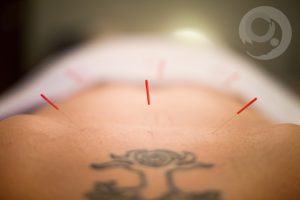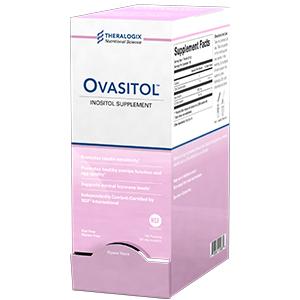
There is a saying in Chinese, “zuo yue zi,” or “Sitting the Month” that refers to the idea that the month following the birth of a baby is a sacred time reserved for rest, regeneration, and bonding with your new baby. After all, birth is an incredibly transformative event, it is rather silly to expect your body, mind, and soul to bounce back to normal activity in a short period of time. In fact, this rush to get back into action quickly is not healthy and can lead to a much longer recovery period.
Unfortunately, our society idolizes women for bouncing back and rushing back into work, life, exercise, and their pre-baby bodies. Celebrities, likely with extreme diet and exercise regimens put forth by their teams of professionals, often are the examples of this unattainable image.
If this isn’t your first child, you know how tough those first few weeks can be. Your newborn is dependent on you for everything and you are working so hard to figure out what each cry means, teaching yourself how to breastfeed or quickly make bottles while your baby gets more and more upset, and, all the while, expected to feed yourself and maybe sneak in a shower. The whole thing is exhausting and can be emotionally draining.
In China, women are encouraged to “sit the month” after birth and remain in bed with baby. Family, partners, and friends take care of the house, cook nourishing meals, and ensure the mother gets the rest she desperately needs. I think we should take a lesson from China and incorporate these theories into our postpartum plans.
During pregnancy, you likely found yourself researching, downloading, and revising your birth plan until it was a perfect vision of what you wanted for your birth. The time after baby comes is often ignored. We should, in fact, be putting at least as much effort into the weeks following baby’s arrival to allow for space for healing and recovery.
Aside from a much needed list of delegated tasks, desires, meal trains etc, a plan should be worked out to allow you to get the rest and recovery you need and the time you want to bond with your new baby.
So here are our tips for navigating your postpartum time:
1. Rest: Your body just went through one of the most single transformative times of your entire life. Give it a break! You nourished and grew a new person, birthed that person, and took on a new role as a mother. This is an amazing feat and it takes time to recover from and get acquainted to your transformed life.
- For the month after birth, rest as much as possible. Lay in bed with your baby, sit on the couch with your baby, sit outside with your baby. Spend time staring at your baby and, of course, catching up on your favorite Netflix shows. If you feel like getting up and walking a little, by all means get off the couch, but listen intently to yourself. If you feel any soreness, increased perineal pressure, notice an increase in your lochia (the bleeding you will have postpartum), or have any discomfort back off and get back on the couch.
- Spend time skin-to-skin with baby. Skin-to-skin was likely something you remember from your birth plan, but the benefits of this go well beyond the hour after birth. Skin-to-skin can help support good breastmilk supply, help baby regulate body temperature, and facilitate bonding. So, put on a robe or button up shirt, cuddle up, and enjoy!
- Limit guests: I know everyone will want to come see the baby, but give yourself a few weeks without a stream of well-intending friends and family. Allow those who will take on a task, laundry, dishes, etc, and tell everyone else to come back later. Entertaining, or feeling like you have to entertain, cleaning your house, and preparing snacks is a lot of unnecessary pressure while you’re becoming familiar with your new role. Additionally, your new baby does not need the exposure to the coughs and sneezes your guests might bring.
2. Eat warm nourishing foods: One very big part of Sitting the Month is proper nutrition to replenish your body and support your recovery. The Chinese recommend a diet of warming foods and herbs. Some examples of things to add to your diet are:
- Ginger: Use in soups or teas. Caution: Occasionally ginger can increase bleeding, so if this is the case for you, stop using it.
- Wam spices: Use cinnamon, cardamom, chile, etc for cooking.
- Bone broth (or vegetarian/vegan bone broth): with added warming spices or herbs.
- Mushrooms: you can add these to your soups and broths for benefit to your immune system.
- Eggs: These are a great source of protein and are great for pregnancy and postpartum support.
- Red raspberry leaf tea: to help regulate hormones and reduce your uterine size back to normal.
- Water, water, water! When your milk comes in you will find your thirst increases quite a bit. Combat that by increasing water consumption. This will also help reduce water retention and prevent headaches and muscle cramps.
- Avoid cold foods: ice water, smoothies, ice cream, salads, raw veggies/fruits, etc.
3. Perineal Support: Whether you gave birth vaginally or not, you will notice some perineal soreness.. If you’ve had stitches or minor tearing you will definitely have some discomfort or even pain as your body heals.
- Say No to Padsicles: We recommend against the ‘padsicles’ you might find on Pinterest. That much cold placed right on tender, healing skin can reduce blood flow, increasing overall healing time. Instead, if you’d like to use something cold to reduce swelling, wrap an ice pack in a towel, so the cold you feel is more cool. Combine with an herbal perineal bath and/or spray to speed healing.
- Perineal sitz baths: A sitz bath made from healing herbs can increase healing time and soothe your sore perineum. You can also use these herbs in a bath with epsom salts for extra relaxation.
- Perineal Spray: Earth Mama Angel Baby makes a fantastic herbal perineal spray that will quickly become your best friend. The combination of herbs in this spray is soothing, cooling, and can help promote healing. Use every time you use the bathroom or as needed. If you have any leftover after healing, it makes a great after-sun face toner!
- Prevent Constipation: Your first bowel movements after baby can be really tough, especially if you’ve had any pain medication or dehydration causing constipation. Taking magnesium or a stool softener in the first week or so can really help make going to the bathroom much more comfortable. Also, make sure you are drinking enough water, as this, of course, will help.
4. Lactation Support: So many women wanting to breastfeed go into it assuming it is a natural and easy process. And, for some, this is absolutely true. For others, it couldn’t be farther from the truth. It is so important to have an ally for your breastfeeding journey. They can make sure you are getting accurate, up to date information. We recommend a prenatal breastfeeding class and a visit from an independent IBCLC in the days after birth to check for tongue/lip ties and check baby’s latch to help support breastfeeding. Check out our resources page for our favorite lactation consultants. Many will do home visits, so you don’t even have to leave your house.
5. Mother Warming Ritual: Moxa, made from the leaves of the mugwort plant, is used to gently warm points along the lower abdomen in mom’s who’ve given birth vagainally or through a Cesarean birth. This is typically done about 3-4 days after birth and promotes healing, milk production, and alleviates discomfort. It is used on an as-needed basis after the initial warming.
- This is a great way for partners to help out with postpartum healing.

6. Acupuncture: There are so many benefits to a course of postpartum acupuncture. We can begin work on restoring your body, support healing, and help treat any issues you might be having with breastfeeding, digestion, sleep, anxiety/depression, etc.
- Our recommended postpartum protocol is just 3 weekly visits starting at 2-3 weeks postpartum and as needed after that.
We look forward to working with you during your pregnancy and into your postpartum time! Please give us a call at 865-31503845 or contact us via email with any questions!








